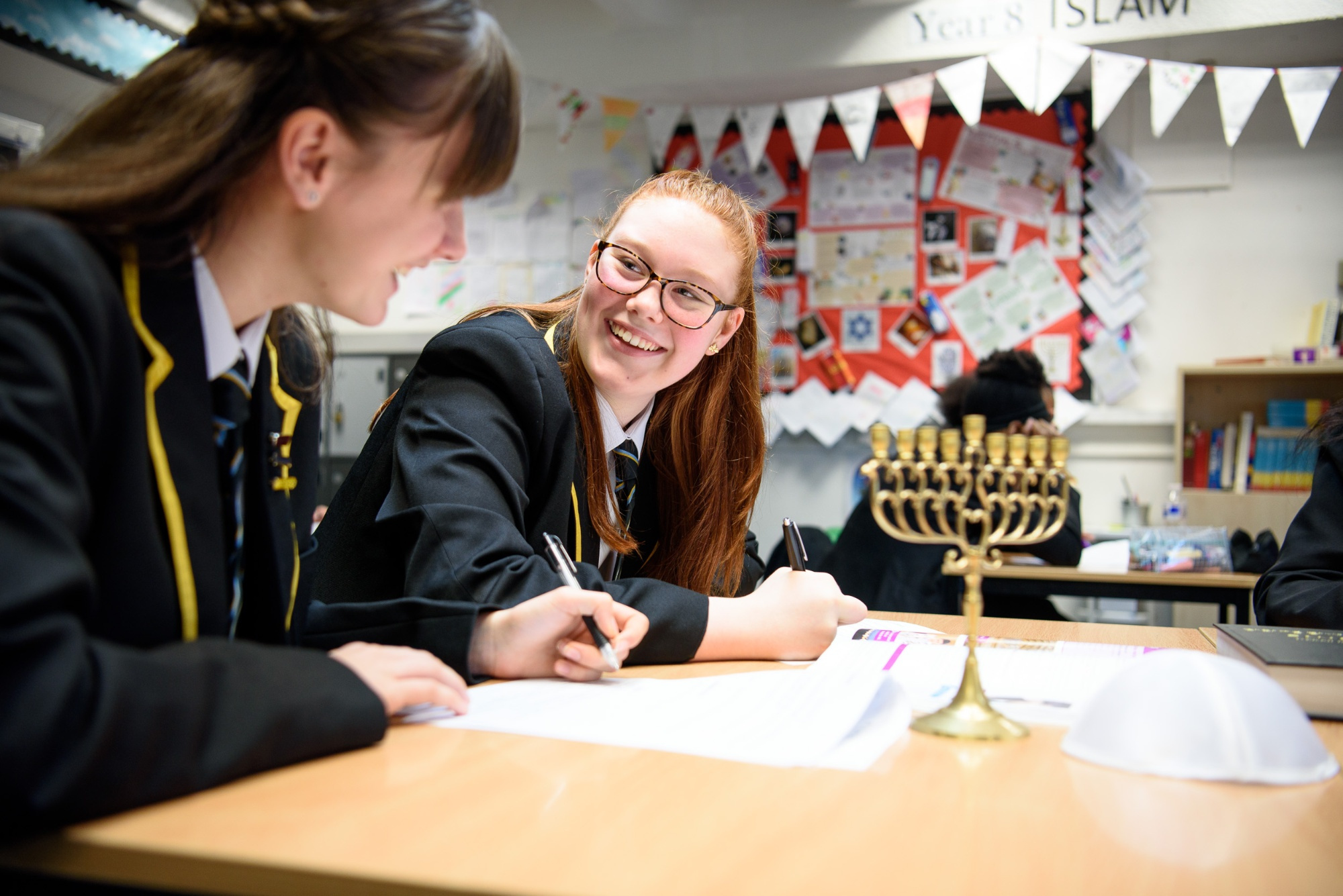Welcome to Mathematics
The Mathematics Department at De La Salle has a long history of success, enabling students to make outstanding progress. Many of our students progress to study Mathematics and further Mathematics at A level and a number of our students have studied Mathematics and mathematics related subjects at university.
Meet the department:
Mrs A Harrison – Head of department
Dr A McKenna – Second in department
Mr A Badger – Maths teacher and Head of Year 7
Ms I Rodol - Maths teacher and Head of Year 9
Mrs D Cook - Maths teacher
Mrs F McCallum – Maths and ICT teacher
Mrs E Curtis – HLTA in Maths
Mrs J Banna – Maths tutor
Purpose of Study
Mathematics is a creative and highly inter-connected discipline that has been developed over centuries, providing the solution to some of history’s most intriguing problems. It is essential to everyday life, critical to science, technology and engineering, and necessary for financial literacy and most forms of employment. A high-quality mathematics education therefore provides a foundation for understanding the world, the ability to reason mathematically, an appreciation of the beauty and power of mathematics, and a sense of enjoyment and curiosity about the subject.
The national curriculum for mathematics aims to ensure that all pupils:
- become fluent in the fundamentals of mathematics, including through varied and frequent practice with increasingly complex problems over time, so that students develop conceptual understanding and the ability to recall and apply knowledge rapidly and accurately.
- reason mathematically by following a line of enquiry, conjecturing relationships and generalisations, and developing an argument, justification or proof using mathematical language.
- can solve problems by applying their mathematics to a variety of routine and non-routine problems with increasing sophistication, including breaking down problems into a series of simpler steps and persevering in seeking solutions.
Subject content
Through the mathematics content, students will be taught to develop fluency, reason mathematically and solve problems.
Mathematics is split into the following areas:
- Number
- Algebra
- Ratio, proportion and rates of change
- Geometry and measures
- Probability
- Statistics
KS3 Mathematics
In Years 7 & 8, students are taught in the same set for all their subjects. Mathematics is taught using the White Rose scheme of work and resources, which encourages mathematical reasoning and helps develop mastery in mathematics. All students follow the same scheme of work and lessons are adapted to meet the needs of all learners. Students have six lessons across the two-week timetable. Home work is set at least once a week.
KS4 Mathematics
Mathematics is a core subject and all students are required to follow the three-year course starting in Year 9. We follow the Edexcel specification (1MA1). GCSE Mathematics is examined by three written papers taken at the end of Year 11. The first is a non-calculator paper, followed by two calculator papers. The time allocated for each paper is 90 minutes. There are two tiers of entry; students who sit the foundation tier can achieve grades 1 – 5 and students who sit the higher tier can achieve grades 4 - 9.
In KS4, students are set according to their ability in mathematics and have seven lessons across a two-week timetable in Years 10 and 11 (6 lessons in Year 9). Sets 1 and 2 follow the higher schemes of work, sets 2 and 3 follow the intermediate scheme of work and sets 4 and 5 follow the foundation scheme of work. Decisions about the tier of entry are made in Year 11.
Homework is set at least once per week.
Assessment in Mathematics
All assessments take the form of mini mocks which are adapted from GCSE papers and students sit two mini mocks per half term. Revision lists (RAGs) are given to students prior to these mini mocks to allow students to prepare. The RAG sheet gives details of every question on the paper and provides the MathsWatch clip which can be used to revise that topic and complete interactive questions.
After students have sat the mini mock and the graded test has been returned to them, they complete the RAG sheet, colouring in every question either green (completely correct), orange, (partially correct) or red (fully correct). Gap Analysis homework takes place after every mini mock. Students should watch the videos on MathsWatch that correspond to the amber and red topics on their RAG sheets and complete the interactive questions. Students should spend at least 30 minutes on their gap analysis homework. This homework will be checked by the teacher who can see the time spent on Maths Watch, the videos watched and the number of interactive questions completed.
All RAGs and Mini Mocks are available in the students’ books for parents/carers to see. There is also a tracker in the front of their books which records the student’s grades over time.
MathsWatch www.mathswatchvle.com
At De La Salle we subscribe to MathsWatch. This is an interactive learning platform which provides video tutorials on every topic with worked examples, interactive questions which give immediate feedback and allows teachers to set bespoke homework. Certificates and rewards will be awarded to the students in every class who use MathsWatch the most.
Username:
FirstnameLastname@dlsbasildon
e.g JamesBond@dlsbasildon
Password: delasalle
Recommended Resources
- www.corbetmaths.com (free)
- www.onmaths.com (free)
Specialist Equipment
In addition to the standard equipment that students are expected to bring to school, students will need in mathematics:
- A scientific calculator (the Casio fx is recommended)
- Protractor
- A pair of compasses




